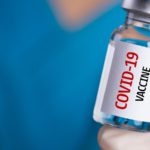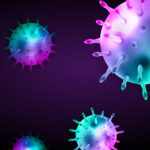Today, May 20, Nova Scotia is reporting 65 new cases of COVID-19 and 184 recoveries.
There are 41 cases in Central Zone, 15 in Eastern Zone, seven in Northern Zone and two in Western Zone.
“As we fight this third wave, I want to encourage Nova Scotians to keep up their efforts and continue to make the right choices,” said Premier Iain Rankin. “Our cases are trending downward and we hope that this continues. But it will only happen if we stay home whenever possible, wear a mask, keep our distance, wash our hands, get tested and get vaccinated when it is our turn.”
One of the cases in Central Zone involves a staff member at Glasgow Hall, a long-term care facility in Dartmouth. A second case is being reported in Eastern Zone involving a staff member of My Cape Breton Home for Seniors in North Sydney. At the direction of public health and as an added precaution, residents and staff from the affected units at both facilities are being tested. Most residents have been fully vaccinated with two doses of COVID-19 vaccine.
There is community spread in Central Zone and now in Sydney. Northern and Western Zones continue to be closely monitored for community spread. There are some areas of concern, particularly in Bridgewater, New Minas and Kentville. Testing has been increased in these areas.
As of today, Nova Scotia has 1,143 active cases of COVID-19. There are 87 people in hospital, including 20 in ICU. The median age of people hospitalized in the third wave is 57 for non-ICU, and 59 for people in ICU.
On May 19, Nova Scotia Health Authority’s labs completed 7,846 tests.
As of May 19, 463,526 doses of COVID-19 vaccine have been administered. Of those, 40,495 Nova Scotians have received their second dose.
“We know the restrictions are working and that is reflected in our case numbers, but they are still much higher than they need to be for us to ease restrictions,” said Dr. Robert Strang, Nova Scotia’s chief medical officer of health. “As the long weekend approaches, I am asking that everyone stay in their communities. This is not the time to travel. We need all Nova Scotians to do their part as we work to limit the spread of the virus.”
Since April 1, there have been 3,323 positive COVID-19 cases and eight deaths. Cases range in age from under 10 to over 90. There are 2,172 resolved cases. Cumulative cases may change as data is updated in Panorama.
Travel within Nova Scotia:
Nova Scotians should remain as close to their home and community as possible, unless travel is essential for work, caregiving, necessary shopping or medical appointments, including vaccination appointments. In this instance, ‘community’ is defined as one’s municipality or county. Detailed information is available at https://novascotia.ca/coronavirus/restrictions-and-guidance/ .
Testing advice:
Nova Scotians with or without symptoms can book a test at https://covid-self-assessment.novascotia.ca/en for primary assessment centres across the province. Those with no symptoms are strongly encouraged to use pop-up sites if they want to be tested.
More information on testing can be found at https://www.nshealth.ca/coronavirustesting
Anyone with COVID-19 symptoms is advised to self-isolate and book a COVID-19 test. Everyone they live with must also self-isolate until the person receives their first negative test result. If the test is positive, public health will advise everyone about what to do.
Anyone advised by public health that they were a close contact needs to complete a full 14-day quarantine, regardless of test results. If the close contact is symptomatic, everyone they live with must also self-isolate until the person receives their first negative test result. If the test is positive, public health will advise everyone about what to do.
Symptoms and self-assessment:
Nova Scotians should visit https://covid-self-assessment.novascotia.ca/ to do a self-assessment if in the past 48 hours they have had or are currently experiencing mild symptoms, including:
— fever (i.e. chills/sweats) or cough (new or worsening)
— sore throat
— runny nose/nasal congestion
— headache
— shortness of breath/difficulty breathing
People should call 811 if they cannot access the online self-assessment or wish to speak with a nurse about their symptoms.
Anyone with symptoms should immediately self-isolate and book a test.
Quick Facts:
— a state of emergency was declared under the Emergency Management Act on March 22, 2020, and extended to May 30, 2021
— due to an increased number of investigations, the exposure category (i.e., travel, close contact or under investigation) is not available by release time; a breakdown by zone identifying exposure categories will no longer be provided regularly
Additional Resources:
More information on COVID-19 case data, testing and vaccines is available at: https://novascotia.ca/coronavirus/data/
More information on testing for the Sydney, Bridgwater and Annapolis Valley areas can be found at: https://www.nshealth.ca/news/public-health-increasing-covid-19-testing-capacity-across-province-address-areas-concern-0
Nova Scotians can find accurate, up-to-date information, handwashing posters and fact sheets at: https://novascotia.ca/coronavirus
Businesses and other organizations can find information to help them safely reopen and operate at: https://novascotia.ca/reopening-nova-scotia
More information about public health text notifications of positive COVID-19 cases and close contacts is available here: https://www.nshealth.ca/news/public-health-begins-contacting-positive-covid-19-cases-close-contacts-text-message
More information on what is considered essential travel is available here: https://novascotia.ca/coronavirus/travel/#from-outside-atlantic-canada
Government of Canada: https://canada.ca/coronavirus or 1-833-784-4397 (toll-free)
The Mental Health Provincial Crisis Line is available 24/7 to anyone experiencing a mental health or addictions crisis, or someone concerned about them, by calling 1-888-429-8167 (toll-free)
Anyone needing help with a non-crisis mental health or addiction concern can call Community Mental Health and Addictions at 1-855-922-1122 (toll-free) weekdays 8:30 a.m. to 4:30 p.m.
Kids Help Phone is available 24/7 by calling 1-800-668-6868 (toll-free)
For help or information about domestic violence 24/7, call 1-855-225-0220 (toll-free)
Source: Release #notw



